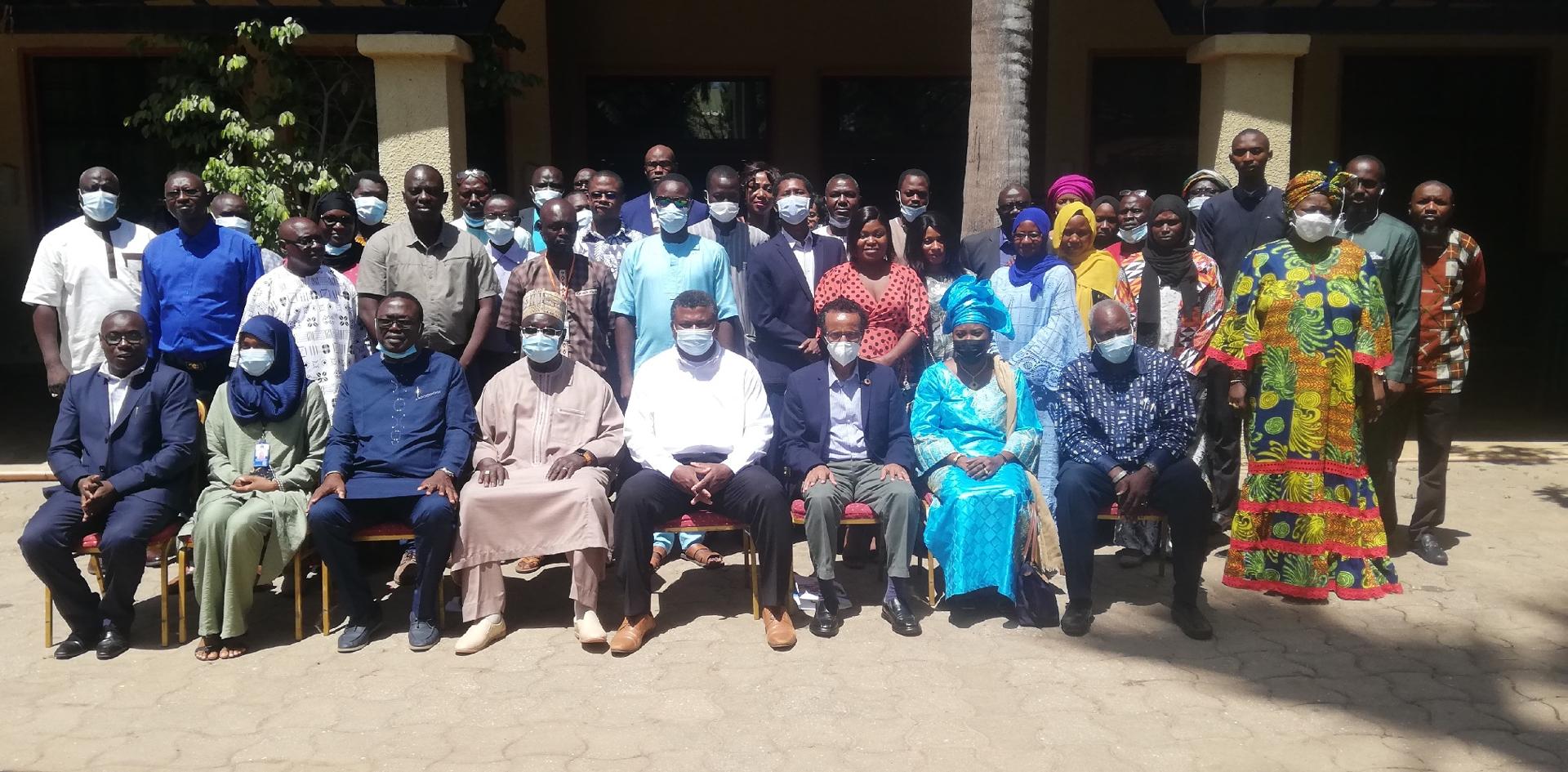Africa-Press – Gambia. The policy will now provide new direction for health sector development. It will also serves as a basis for driving health sector priorities and planning as a good resource allocation process, where all other pharmaceuticals policies would be anchored on.
Welcoming the gathering, Babanding Sabally, director of Pharmaceutical Services at the Ministry, reminded that access to health care is a fundamental human right, saying this is even clearly spell out in the Universal Declaration on Human Right that is recognise universally.
“However, access to heath cannot be fulfilled without the availability of essential medicines. Therefore, this statement affirms that other health care givers are synonymous to optimal functioning of the pharmaceutical sector.” Director Sabally acknowledged that weak pharmaceutical sector cannot support delivery of quality health care sector.
Also speaking, Dr. Desta A Truneh, World Health Organization representative in The Gambia, congratulated the Ministry particularly the Directorate of Pharmacy and its partners for what he called ‘achieving this important milestone.’
“We are pleased that the country has been able to work through these difficult times and develop a robust National Medicines Policy. I’m sure most of you have been involved in informing the development of the policy and the Supply Chain Strategic Plan.”
WHO country rep informed that the country is going through multiple reforms in the health sector, citing the launch of the National Health Insurance Scheme, the scale up of the eLMIS and the introduction of a new national policy.
This policy, he went on, was developed in the wake up of the four waves of the Covid-19 epidemics, noting that across the globe the epidemic exposed the gaps in the health system.
“Based on the lessons learned and the quickly shifting epidemiological transition, this policy has forward looking solutions for Gambia’s health sector. It intends to create more resilient systems that can better cope with epidemics and the growing need in The Gambia.”
Dr. Truneh indicated that the budget spent on procurement of Medicines and related products has not been enough to stop stockouts, further recalling that in the last five years the per-capita expenditure of budget on medicines was not more than US$1.04,which is less than the recommended WHO threshold of US $2.00.
For his part, Dr. Ahmadou Lamin Samateh, minister of Health said that over the last six years the pharmaceutical sector has seen significant achievements most notably the enactment of the Pharmacy Control Act as well as Medicine and other Related Products Act 2014.
These, he added, has eventually led to the establishment and full functioning of two regulatory bodies namely, the Medicines Control Agency and the Pharmacy Council of The Gambia 2016.
“The Medicines Control Agency regulates medicines and related products from importation to destribution and even manufacturing just to name a few. The Pharmacy Council of The Gambia regulates the pharmacy in terms of personelle.”
Minister Samateh acknowledged that together the two regulatory bodies ensure that medicines acquisition and use are strickly controlled so that quality medicines are in circulation in the country and that duly qualified are dealing with pharmaceuticals.
He equally reminded that another significant success registered by the Ministry through the Pharmaceutical sector is the shift in policy in the procurement of pharmaceuticals from single sourcing to international competitive bidding.
“This major move has meant that the pharmaceuticals services in procuring the annual supply of essential medicines has been able to get much better value for money, resulting in a significant in increase in the variety and quantity of essential medicines.”
For More News And Analysis About Gambia Follow Africa-Press






